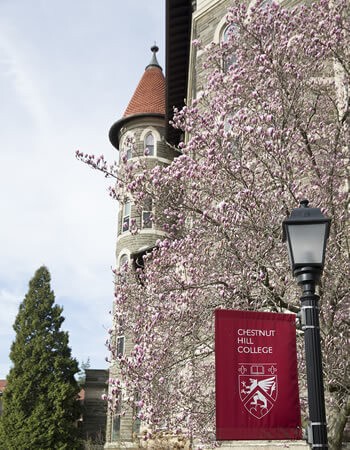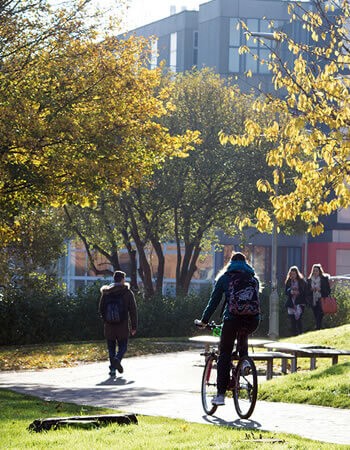The Truth About Transferring

Thinking about starting at a community college before transferring to a 4 year school? You’re not alone! In fact, according to a report from the National Association for College Admission Counseling, a third of students end up transferring from one college to another. But how does transferring work? And is it the right option for you? Read on to find out—plus learn why Raritan Valley Community College is the ultimate choice for those interested in transferring from community college later on!
What does transferring mean?
Transferring is moving from one college to another with some level of coursework completed. The idea is for all (or most) of the credits you earned at college #1 to be accepted at college #2. You’ll need to apply to the second school as a transfer student and send over your transcript for consideration. And no worries—you’ll still be eligible for financial aid as a transfer student.
Why do people transfer?
A lot of reasons! Many people start at affordable 2 year colleges like RVCC and later transfer to 4 year schools to save money on tuition. Others want a chance to get their grades up, or take time to figure out what they want to be when they grow up. Or sometimes folks with 2 year degrees decide they want to continue their course of study and get a more advanced degree in their chosen field. Everyone’s reasoning is different!
What is a transfer agreement?
A transfer agreement, also known as an articulation agreement, is a partnership between two colleges designed to foster easier transfers. Often the schools will outline policies for specific academic programs or degrees so that students will know the exact transfer requirements up front.
RVCC has close to 90 transfer agreements with a wide range of 4 year colleges and universities to make the community college transfer process as seamless as possible. From New Jersey colleges like Rutgers, Seton Hall and Montclair State to international institutions like the American University of Paris and the University of the West of England (UWE), Bristol, you’re bound to find the right option for you.
What if I want to transfer to a non-partner school?
Even without a transfer agreement in place, most of your credits should transfer to any college in the country, assuming you’ve taken the appropriate courses or program of study for your intended major and achieved a “C” grade or better in each course. Occasionally, some credits do not transfer. If you’re looking to transfer between NJ colleges, you may want to reference NJTransfer, a website that helps you determine whether your credits will transfer between different institutions within the state.
Why is RVCC a good choice for those looking to eventually transfer?
Of all the community colleges in New Jersey, RVCC is arguably the most “transfer friendly.” Our graduates have transferred to such prestigious colleges and universities as Columbia University, Cornell University, American University, Howard University, New York University, The College of New Jersey and Drew University. RVCC students have access to academic advisors and transfer counselors who can help them select transfer-friendly courses. We even hold Transfer Days, where dozens of four-year institutions meet with students on campus.
To learn more about RVCC, attend our Open House or an upcoming Information Session. We hope to see you soon!



